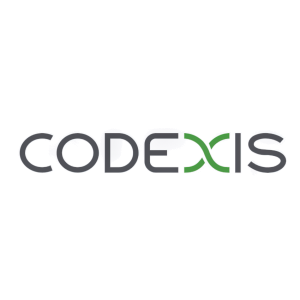seqWell and Codexis to Unveil Engineered Transposase Enzyme for Genomics Applications at AGBT General Meeting
TnX transposase development collaboration leverages strengths of both companies
BEVERLY, Mass. and REDWOOD CITY, Calif., Feb. 01, 2024 (GLOBE NEWSWIRE) -- seqWell, a global provider of genomic library workflow solutions, and Codexis, Inc. (NASDAQ: CDXS), a leading enzyme engineering company, today announced the creation of an engineered high-performance transposase enzyme designed to drive superior performance in sequencing applications. The co-development of this new transposase enzyme – called TnX transposase – builds upon a multi-year partnership between the two companies, leveraging Codexis’ strength in enzyme engineering, and seqWell’s expertise in developing tools to improve next-generation sequencing (NGS) performance. Performance data highlighting this enzyme will be presented during the Advances in Genome Biology and Technology (AGBT) General Meeting being held February 5 – 8, 2024 in Orlando, Florida.
“As the NGS technology landscape evolves, the demand for library prep products that offer enhanced data quality and high throughput capabilities has never been greater,” said Dan Calvo, Chief Executive Officer at seqWell. “The TnX transposase enzyme is an exciting step forward in revolutionizing high-throughput NGS assays by reducing insertion-site bias and delivering higher enzyme activity, ultimately enabling our customers to improve data quality and scale their experiments with faster and more efficient workflows.”
“Codexis has a long history of leveraging our proprietary CodeEvolver® technology to develop innovative, market-leading enzymes, and then working with exceptional partners to realize each program’s full technical and commercial potential,” said Stephen Dilly, MBBS, PhD, Chief Executive Officer of Codexis. “We’re delighted to be working with seqWell on this enhanced transposase, and look forward to showcasing the data behind our excitement at AGBT.”
This newly engineered transposase is designed to exhibit significantly lower bias, potentially providing more uniform coverage of sequenced DNA; improved activity, converting a higher percentage of DNA to library; and improved robustness across a range of assay conditions. seqWell plans to incorporate the TnX transposase into new NGS workflow kits currently in development.
“Enzymes play a critical role in sequencing workflow chemistries,” said Gavin Rush, Vice President of Research and Development at seqWell. “Engineering better-performing enzymes, such as TnX transposase, enables the development of higher quality NGS library preparation products, which will help researchers generate more accurate, complete, and robust sequencing data.”
Presentation Details
Poster #505: A Novel Engineered Transposase (TnX™) for Improved Performance in Genomic Applications
Location: Palms I Ballroom
Date: Wednesday, February 7, 2024
Time: 4:45 pm – 6:10 pm ET
About seqWell
seqWell creates scalable genomics technologies that simplify workflows and help enable every life scientist to unlock transformative discoveries with sequencing. seqWell offers a range of next-generation library prep products and workflows that allow customers to achieve higher levels of sample multiplexing quickly and easily. Learn more about us at www.seqwell.com or follow us on Linkedin.
About Codexis
Codexis is a leading enzyme engineering company leveraging its proprietary CodeEvolver® technology platform to discover, develop and enhance novel, high-performance enzymes and other classes of proteins. Codexis enzymes solve for real-world challenges associated with small molecule pharmaceuticals manufacturing and nucleic acid synthesis. The Company is currently developing its proprietary ECO Synthesis™ platform to enable the scaled manufacture of RNAi therapeutics through an enzymatic route. Codexis’ unique enzymes can drive improvements such as higher yields, reduced energy usage and waste generation, improved efficiency in manufacturing and greater sensitivity in genomic and diagnostic applications. For more information, visit https://www.codexis.com.
Codexis Forward-Looking Statements
This press release may contain forward-looking statements within the meaning of Section 27A of the Securities Act of 1933, as amended, and Section 21E of the Securities Exchange Act of 1934, as amended. In some cases, you can identify forward-looking statements by terminology such as “aim,” “anticipate,” “assume,” “believe,” “contemplate,” “continue,” “could,” “design,” “due,” “estimate,” “expect,” “goal,” “intend,” “may,” “objective,” “plan,” “positioned,” “potential,” “predict,” “seek,” “should,” “suggest,” “target,” “on track,” “will,” “would” and other similar expressions that are predictions of or indicate future events and future trends, or the negative of these terms or other comparable terminology. To the extent that statements contained in this press release are not descriptions of historical facts, they are forward-looking statements reflecting the current beliefs and expectations of management, including but not limited to statements regarding the predicted benefits and success of a new transposase enzyme, the anticipated demand for library prep products and seqWell’s plans to incorporate such new transposase into new NGS workflows. You should not place undue reliance on these forward-looking statements because they involve known and unknown risks, uncertainties and other factors that are, in some cases, beyond Codexis’ control and that could materially affect actual results. Factors that could materially affect actual results include, among others: Codexis’ dependence on its licensees and collaborators; if any of its collaborators terminate their development programs under their respective license agreements with Codexis; Codexis may need additional capital in the future in order to expand its business; and if competitors and potential competitors who have greater resources and experience than Codexis develop products and technologies that make Codexis’ products and technologies obsolete. Additional information about factors that could materially affect actual results can be found in Codexis’ Annual Report on Form 10-K filed with the Securities and Exchange Commission (“SEC”) on February 27, 2023 and in Codexis’ Quarterly Report on Form 10-Q filed with the SEC on November 3, 2023, including under the caption “Risk Factors,” and in Codexis’ other periodic reports filed with the SEC. Codexis expressly disclaims any intent or obligation to update these forward-looking statements, except as required by law.
For More Information
seqWell Contact
Media Contact
Gwen Gordon
Gwen@gwengordonpr.com
Codexis Contacts
Investor Contact
Carrie McKim
(336) 608-9706
ir@codexis.com
Media Contact
Lauren Musto
(650) 421-8205
media@codexis.com








